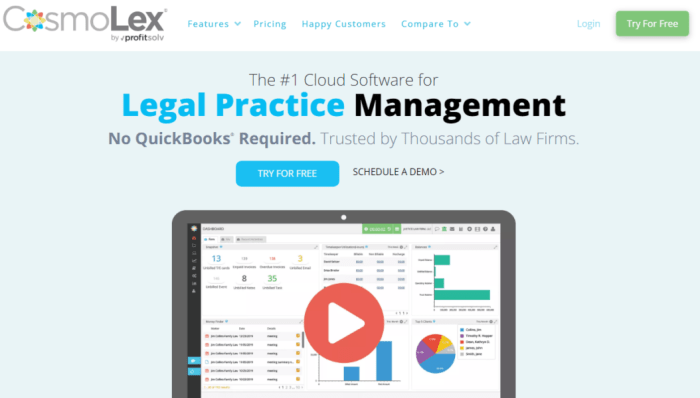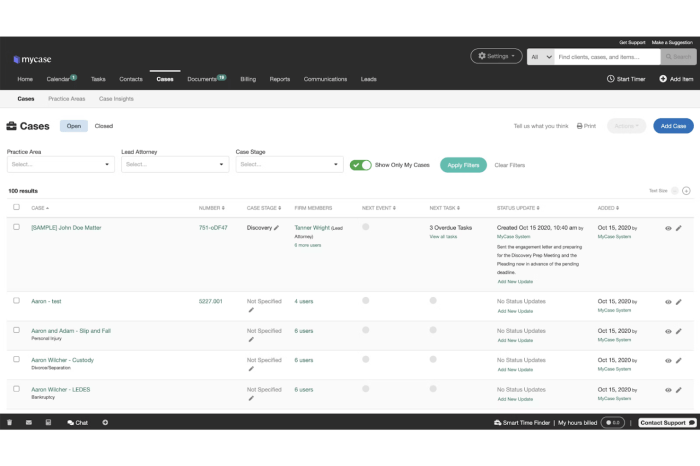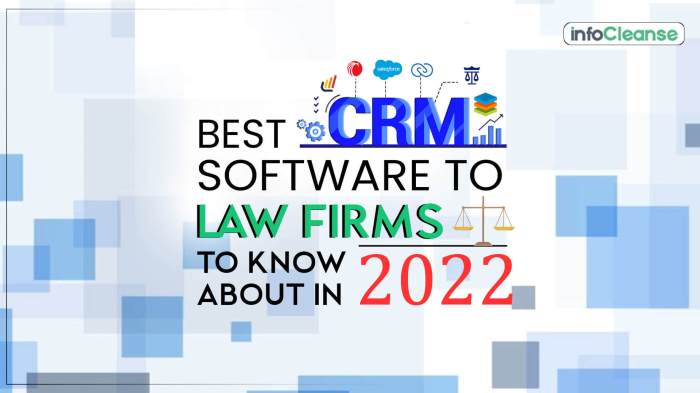Crm software for family law – The practice of family law is demanding, requiring meticulous organization, efficient communication, and a keen eye for detail. Juggling multiple cases, clients, deadlines, and court appearances can quickly become overwhelming. This is where a robust Customer Relationship Management (CRM) system specifically designed for family law firms can make a significant difference. A well-implemented CRM can streamline operations, improve client communication, enhance case management, and ultimately boost your firm’s profitability and efficiency.
This comprehensive guide explores the key features, benefits, and considerations when choosing CRM software tailored for the unique needs of family law practices.

Source: webfx.com
Understanding the Unique Needs of Family Law Practices
Family law cases are inherently complex and emotionally charged. Unlike other legal specializations, they often involve highly sensitive personal information, intricate financial details, and ongoing communication with multiple parties. A standard CRM won’t suffice; you need a system that addresses the specific requirements of this field. Key considerations include:
Data Security and Privacy, Crm software for family law
Protecting client confidentiality is paramount in family law. Your chosen CRM must comply with all relevant data privacy regulations, such as HIPAA (if applicable) and GDPR, ensuring secure storage and transmission of sensitive information. Look for systems with robust security features like encryption, access controls, and audit trails.
Case Management Capabilities
Effective case management is crucial. The CRM should allow you to track all aspects of a case, including deadlines, court dates, documents, communication logs, and financial details. Features like customizable fields, automated reminders, and integrated document management are essential.
Client Communication Tools
Maintaining clear and consistent communication with clients is vital. The CRM should facilitate seamless communication through various channels, including email, phone, and secure messaging. Features like automated email responses, client portals, and integrated calendar scheduling can significantly improve communication efficiency.
Financial Management Integration
Family law often involves complex financial matters, such as child support calculations, asset division, and spousal maintenance. Ideally, your CRM should integrate with your accounting software to streamline billing, payment processing, and financial reporting.
Collaboration and Teamwork
Many family law cases involve collaboration between multiple attorneys, paralegals, and support staff. The CRM should facilitate seamless teamwork through features like shared calendars, task assignments, and collaborative document editing.
Key Features of a Family Law CRM
A top-tier CRM for family law firms goes beyond basic contact management. It offers a range of specialized features designed to enhance efficiency and improve client service. Here are some key features to look for:
Client Portal Access
A secure client portal allows clients to access their case information, communicate with their attorney, and upload documents securely. This improves transparency and reduces administrative burden on your staff.

Source: revopsteam.com
Automated Workflow and Reminders
Automated workflows can streamline repetitive tasks, such as sending out reminders for court dates, deadlines, and client appointments. This reduces the risk of missed deadlines and improves overall efficiency.
Document Management
Centralized document management allows you to securely store and access all case-related documents, ensuring easy retrieval and reducing the risk of losing critical information. Look for systems with robust search capabilities and version control.
Reporting and Analytics
Comprehensive reporting and analytics provide valuable insights into your firm’s performance, allowing you to identify areas for improvement and track key metrics such as caseload, revenue, and client satisfaction.
Integration with Other Legal Software
Seamless integration with other legal software, such as case management systems, e-filing platforms, and accounting software, can further streamline your workflow and reduce data entry.
Time Tracking and Billing
Accurate time tracking is essential for accurate billing. The CRM should integrate with time tracking software to automatically generate invoices and track billable hours.
Choosing the Right CRM for Your Family Law Firm
Selecting the right CRM involves careful consideration of your firm’s specific needs, budget, and technological capabilities. Here are some factors to consider:
Scalability
Choose a CRM that can scale with your firm’s growth. As your caseload increases, you’ll need a system that can handle the increased volume of data and users.
Ease of Use
The CRM should be intuitive and easy to use for all members of your team, regardless of their technical expertise. Look for systems with user-friendly interfaces and comprehensive training resources.

Source: infocleanse.com
Cost
Consider the total cost of ownership, including software licensing fees, implementation costs, and ongoing maintenance. Compare pricing models and features to find the best value for your investment.
Customer Support
Reliable customer support is crucial. Choose a vendor that offers prompt and helpful support in case you encounter any problems or have questions.
Examples of CRM Software for Family Law
Several CRM platforms offer features suitable for family law practices. Research and compare options based on your specific requirements. Some popular choices (though specific suitability needs individual assessment) include:
- CaseGlide: Often cited for its legal-specific features.
- MyCase: A popular choice known for its user-friendly interface and comprehensive features.
- PracticePanther: Another strong contender with a focus on legal practice management.
- Clio: A widely used CRM with strong features, though may require customization for specific family law needs.
Note: This is not an exhaustive list, and the best CRM for your firm will depend on your individual needs and preferences. Thorough research and potentially trial periods are recommended.
Frequently Asked Questions (FAQ)
- Q: Is a CRM necessary for a small family law firm? A: Even small firms can benefit significantly from a CRM by improving organization and client communication.
- Q: How much does family law CRM software cost? A: Costs vary widely depending on features, number of users, and vendor. Expect a range from monthly subscription fees to more substantial upfront investments.
- Q: Can a CRM help with client retention? A: Yes, by improving communication and client service, a CRM can contribute to higher client satisfaction and retention rates.
- Q: What about data security? A: Reputable CRM vendors prioritize data security with features like encryption and access controls. Ensure the vendor complies with relevant data privacy regulations.
- Q: How long does it take to implement a CRM? A: Implementation time varies depending on the complexity of the system and your firm’s size. Expect some initial setup time and potentially ongoing training.
Conclusion
Implementing a CRM tailored for family law can significantly improve your firm’s efficiency, client communication, and overall profitability. By carefully considering your needs and researching available options, you can find a system that streamlines your workflow and empowers you to provide exceptional service to your clients. Don’t let administrative burdens overshadow your legal expertise – embrace the power of a well-chosen CRM to elevate your family law practice.
Call to Action
Ready to streamline your family law practice? Contact us today for a free consultation and let us help you find the perfect CRM solution for your needs.
FAQ Insights: Crm Software For Family Law
What types of data can a CRM store for family law cases?
CRMs can store client contact information, case details, document uploads, appointment schedules, communication logs (emails, calls, notes), financial information related to the case, and deadlines.
How does a CRM improve client communication in family law?
CRMs often include features like secure client portals for document sharing, automated email updates on case progress, and integrated communication tools for quick and easy contact.
Are there CRM systems specifically designed for family law?
While some CRMs offer specialized legal features, many general-purpose CRMs can be adapted and customized to fit the specific needs of a family law practice.
What is the cost of implementing a CRM for a family law firm?
The cost varies widely depending on the chosen software, its features, the number of users, and any required customization or integration services. Some offer tiered pricing based on usage.
How do I choose the right CRM for my family law practice?
Consider factors like budget, required features (client portal, document management, reporting), ease of use, scalability, and integration capabilities with existing software.
